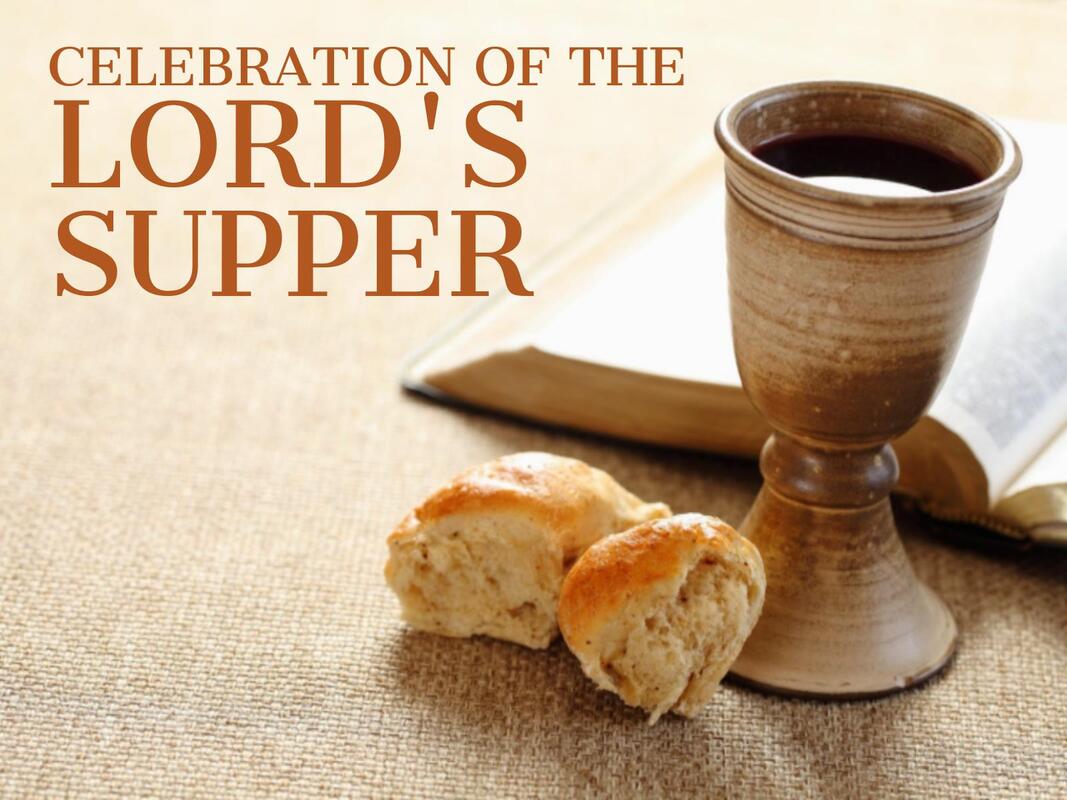|
Scripture provides principles and teachings that can guide the believer's behaviour and attitudes in any area of life, including the workplace. Here are a few key principles from the Bible that can be applied to the workplace:
1. Work as unto the Lord As Christians we should approach the work context with diligence, integrity, and excellence, considering it as an opportunity to serve God. Colossians 3:23-24 says, "Whatever you do, work heartily, as for the Lord and not for men, knowing that from the Lord you will receive the inheritance as your reward. You are serving the Lord Christ." 2. Honesty and integrity God's Word emphasizes the importance of honesty and integrity in all aspects of life, including work. Proverbs 11:1 states, "A false balance is an abomination to the Lord, but a just weight is his delight." As Christians we are called to be trustworthy and to conduct ourselves with integrity in our interactions with colleagues, clients, and employers. 3. Treating others with respect and fairness The Bible teaches that Christians should treat others with love, respect, and fairness. This applies to how Christians interact with their coworkers, subordinates, and superiors. Matthew 7:12, known as the Golden Rule, says, "So whatever you wish that others would do to you, do also to them." 4. Diligence and responsibility The Bible encourages Christians to work diligently and responsibly. Proverbs 12:24 states, "The hand of the diligent will rule, while the slothful will be put to forced labor." As believers, we are called to be diligent, responsible, and reliable in our work. 5. Prioritizing God and maintaining ethical standards While the workplace may present various challenges and temptations, we Christians are called to prioritize our relationship with God and maintain ethical standards. Colossians 3:17 advises, "And whatever you do, in word or deed, do everything in the name of the Lord Jesus, giving thanks to God the Father through him." It is important to note that the practical application of these principles may vary depending on the specific circumstances, job responsibilities, and workplace policies. Christian, you are to seek to live out your faith in a manner that aligns with these biblical principles while also respecting the rules and expectations set by employers.
0 Comments
From the young toddler who just learned the word “no” to the older child acting out in willful defiance, all parents face the challenge of disobedient children. And, at the heart of the matter, disobedience is not just a child issue.
The Bible shows us we all battle the desire to rule ourselves and do as we please because we all are born into sin and rebellion (Psalm 51:5; Ephesians 2:3; Romans 3:10; 7:17–21). This battle against self-rule can wage an all-out war on our children if their disobedience is left unchecked; a war that will affect their future relationships with teachers, employers, friends, spouses, aging parents, and even their Heavenly Father. Yet, when we turn to the Bible, we find great hope in the fact that God gives the tools to train and discipline disobedient children and even promises blessing to those who learn and grow in obedience. The command to honor and obey parents permeates Scripture, beginning in Exodus when God gives the Ten Commandments (Exodus 20:12) all the way through the Old Testament (Leviticus 19:3; Deuteronomy 5:16; Proverbs 1:8; 6:20–21; 23:22) and into the New. Both Jesus and the apostle Paul reaffirm the fifth commandment (Matthew 15:4; 19:19; Ephesians 6:1–3; Colossians 3:20). Children are encouraged that their obedience will bring blessing (Exodus 20:12; Jeremiah 35:17–19; Ephesians 6:3; Colossians 3:20), while disobedient children who dishonor their parents are admonished that their behavior will bring punishment and shame (Leviticus 20:9; Deuteronomy 21:18; 27:16; Proverbs 10:1; 15:5; 20:20; 30:17; Matthew 15:4). Widespread disobedience to parents will characterize society in the end times (2 Timothy 3:2). The nation of Israel, whom God calls His children (Exodus 4:22), provides an example for disobedient children. Repeatedly, God commands Israel to obey Him, promising great blessing for obedience and dire consequences for disobedience. In Joshua’s day, Israel obeyed God and was blessed with victory over their enemies (Joshua 11:23). Later, as the whole book of Judges shows, Israel’s disobedience brought trouble. The Bible teaches the necessity of correcting disobedient children. Discipline is a part of life for everyone, and those who rebel against the authority of parents are to be chastised. Proverbs 19:18 says, “Discipline your children, for in that there is hope; / do not be a willing party to their death.” In this verse, discipline of a child is presented as a matter of life and death. Disobedience, left unchecked, will lead a child to eventual ruin. Proverbs 13:24 says, “Whoever spares the rod hates their children, / but the one who loves their children is careful to discipline them.” Here, love and careful discipline go hand in hand. The idea is refuted that a “loving” parent will never discipline a child. To turn a blind eye to rebellion is to hate the rebellious child. Ephesians 6 is a key passage. Verse 1 speaks to children: “Children, obey your parents in the Lord.” That is, obedience to one’s parents is the God-given duty of every child. As long as the parents’ commands do not violate God’s Word, the child should obey. Verse 4 speaks to fathers: “Fathers, do not exasperate your children; instead, bring them up in the training and instruction of the Lord.” It is the duty of fathers to train their children in a godly way and to instruct them in the Lord’s Word. In so doing parents set their children up for the best chance for a long and prosperous life in this world (verse 3)—and treasures in heaven, too (Matthew 6:20; Galatians 6:8–9; Ephesians 1:3–4). Who is wise? Let them realize these things. Who is discerning? Let them understand. The ways of the LORD are right; the righteous walk in them, but the rebellious stumble in them. Hosea 14:9 The book of Ephesians is one of the letters written by the Apostle Paul in the New Testament. It contains six chapters that address various themes and instructions for believers. Here is a summary of the key points in the book of Ephesians:
Chapters 1-3: - The letter begins with Paul praising God for the blessings He has bestowed on believers through Christ. He emphasizes God's plan of salvation, predestination, and the redemption offered through Jesus' sacrifice. - Paul highlights the unity of believers, both Jews and Gentiles, in Christ. He explains that through Christ's work, they are reconciled to God and brought into one body, the Church. - The Apostle prays for the Ephesian believers, asking God to grant them wisdom, knowledge, and understanding of His great power and love. Chapters 4-6: - Paul shifts his focus to practical instructions for Christian living. He urges believers to walk in a manner worthy of their calling, emphasizing unity, love, and the importance of using their spiritual gifts to edify the body of Christ. - He encourages believers to put off their old sinful behaviours and put on righteousness, honesty, and kindness. He addresses specific areas of life such as anger, dishonesty, sexual purity, and relationships. - Paul instructs husbands and wives on their roles within marriage, parents on raising their children in the fear of the Lord, and slaves and masters on their conduct in the workplace. - He also discusses the spiritual warfare that believers face, emphasizing the armor of God and the power of prayer. Throughout the book, Paul emphasizes the grace of God, the work of Christ on the cross, and the unity of believers in the body of Christ. He encourages us as believers to live out our faith practically, demonstrating love, humility, and obedience to God's commands. The letter to the Ephesians serves as a guide for believers to understand our identity in Christ and to live in accordance with God's purposes and plans. The Bible begins and ends with meals. The first words of God to humans are an invitation to eat; the first conflict in the Bible is over a forbidden meal; the last act of Jesus before his death is to share a meaning-laden feast with his disciples; and the final vision of the new world is of a massive, joyful banquet.
One of the blessings we enjoy as Christians is that wherever we find ourselves in the world, we have a community to which we belong, where genuine relationships with other Christians can be enjoyed. If we neglect table fellowship, we will miss one of the wonderful ways God builds authentic community in the church. As creatures made in God’s image, we were created for relationships, both with God and with other image bearers. By God’s design, therefore, genuine relationships are the basis for all human flourishing. We learn in the Bible that sharing a meal together is one of the primary ways relationships are established, deepened, and enjoyed both with God and with others. Jesus was rooted in and lived this tradition. Just as he shared food with all sorts and conditions of people as a sign of the inclusivity of God’s kingdom, so too did the early church. The gatherings to eat together were earthly representations of the heavenly banquet imagery that had been reinforced by Jesus through his teaching as well as his actions. Following in the footsteps of Jesus, the table fellowship of the early Christians was warm and accepting. The joy of eating together, the value of table fellowship for deepening relationships, the missional fruitfulness of shared meals and the opportunities for sharing faith, biblical study, prayer and worship around the meal table have all been rediscovered many times. The Old Testament prophets often compared life in the new heavens and earth with the picture of a divine banqueting table (Isa. 25:6; 55:1–2). In the New Testament, we regularly find Jesus reclining “at table” during His earthly ministry, engaging with real people, furthering His kingdom work, fostering true community, demonstrating reconciliation with God, and building genuine fellowship among His disciples (Luke 5:29; 7:36; 11:37; 14:15).
I’m convinced that one of the most important spiritual disciplines for us to recover in the kind of world in which we live is the discipline of table fellowship. In the fast-paced, tech-saturated, attention-deficit-disordered culture in which we find ourselves, Christians need to recover the art of a slow meal around a table with people we care about. “Table fellowship” doesn’t often make the list of the classical spiritual disciplines. But in the midst of a world that increasingly seems to have lost its way with regard to matters of both food and the soul, Christian spirituality has something important to say about the way that sharing tables nourishes us both physically and spiritually. We need a recovery of the spiritual significance of what we eat, where we eat, and with whom we eat. To the Mothers of Knysna, we wish you a blessed weekend and a very Happy Mother's Day.
What we know is nothing is really lost until your mother can't find it! Did you know that the only thing mentioned at creation before the fall of man that was not good was for a man to be alone, so God made woman, Eve! And after that, everything was "very good" . Should any parents need encouragement or guidance with parenting, do not hesitate to reach out to us at Lagoonside Church in Knysna. We are here to assist you. Being a mother or father can be daunting, but God's Word offers the counsel we need. Our Prayer For Mothers Dear Lord, We come to you today to lift up all mothers around the world. We thank you for the gift of motherhood and for the countless sacrifices that mothers make every day to nurture, care for, and protect their children. We pray for strength and wisdom for all mothers, especially those who are facing difficult situations or challenging circumstances. We ask that you provide them with the support they need to fulfill their responsibilities as mothers and to guide their children towards a happy and fulfilling life. We pray for mothers who are grieving the loss of a child, for mothers who are struggling with health issues, for single mothers who are facing financial hardship, and for all mothers who are going through difficult times. We ask that you comfort them and give them the courage to face their challenges with grace and resilience. We pray for mothers who are celebrating the joys of motherhood, for those who have seen their children grow and thrive, and for those who have found new love and hope in their role as a mother. We ask that you continue to bless them and their families with health, happiness, and prosperity. Most importantly, we pray that all mothers know how much they are loved and appreciated, not just on Mother's Day, but every day of the year. May they always feel your presence and know that you are with them every step of the way. We ask all these things in your holy name. Amen. Jesus gives us what we need
Palm Sunday, also known as Passion Sunday, is the start of the journey to the cross! As Jesus approached Jerusalem, He sent two disciples ahead for preparation. A donkey was selected for His ride into town (fulfilling Zechariah 9:9). The Saviour entered the city with shouts of joy from the people that gathered. Cloaks and palm branches covered the road as the anticipated King arrived. Everyone seemed to be happy on Palm Sunday. Sadly though, the tone would soon change as their hero would be arrested, tried, and crucified. In this arrival, the crowds wanted a Messiah who would give political and national rescue. Jesus had a better mission. His mission was to save sinful man and woman—by the gift of His own blood. In our lives, we tend to sway back and forth from good days and bad days. If you are like me, you may wake up one morning with expectations on how the day should go. I wonder what went through the minds of these folks gathered when they witnessed their hero fall later in the week? We can learn much from this story. Jesus came to give them what they needed and not what they wanted! They wanted someone to rise up and give them power. Jesus gave up His power so that they could rise up over sin and death! He exchanged His perfect life for their broken lives. He took the punishment of sin off of their souls and gave them eternal salvation. They needed that gift more than anything else in the world and so do we. Today, cherish the Saviour in what He gave you. You NEED Him above anything or anyone that may disappoint you today. You NEED Him for an unbreakable hope and future. You NEED Him for endless joy and mercy. You NEED Him for days in which you can’t celebrate. He is eternally worthy to be celebrated! Spend some time in prayer today, thanking Him for coming to save you. Why not join us next Sunday at Lagoonside Church in Knysna to find out more about the Saviour we celebrate! Hosanna to the Son of David! Blessed is he who comes in the name of the Lord! Hosanna in the highest heaven! When he entered Jerusalem, the whole city was in an uproar, saying, “Who is this?” The crowds were saying, “This is the prophet Jesus from Nazareth in Galilee.” . . . Jesus would withdraw to desolate places and pray--Luke 5:16
Why are we men so bad at solitude? Our king did it quite well. As a man, Jesus knew his limitations. He understood his need to connect with his father—to his guidance and power. He knew how good that connection was. He wants us to know too. If it’s so good, though, why do we struggle? Well, it’s a little because we’re busy. Solitude is hard when you’re working and/or married and/or have kids and/or have friends. And, it’s a little because we’re not well practiced. Our culture trains us for motion and multitasking—not for slowing and simplifying. And it’s a little because, deep down, we know solitude means confrontation. You see, solitude removes distractions and leaves us, for a few minutes, alone with God the Holy Spirit. Solitude is sometimes defined as being alone, but we aren’t. The Spirit dwells within us (1 Corinthians 3:16). God’s right there. And we never know what might happen when we’re alone with God. He might ask us to stop something we don’t want to stop or start something we don’t want to start. He might. He does that (Hebrews 12:5). But if we avoid his confrontation, we’ll miss his companionship, counsel, comfort, restoration, and rescue. So, we must take courage. We must not worry that we don’t yet do it well. And, we must make solitude a priority, just as Jesus did. Okay, so what do we do? Start small. Find something that works for you. Turn off devices and take a walk at work—at lunchtime or during a break. Get some air in your neighborhood after dinner. Slip outside just before bed and sit quietly in the dark. And, if you’re ready for more, take a half-day or full-day or overnight solo trip into the outdoors. Get alone with God! A Series through the major themes of the Book of Proverbs
Join us Thursday Evenings 7pm where we will be going through the Boob of Proverbs for our Mid Week Bible Study. Wisdom is often the difference between barren living and fruitful living. The proverbs often present choices we must make between the two. We will be covering key topics like: Relationships within the Family Anger Friendship Justice Humility Money Honesty Happiness Diligence And so much more! Don't miss out on this crucial practical study in Scripture. Proverbs speaks to The Hopeful Man In these last days we are being exposed to global issues that affect the lives of us all. As the unbeliever faces physical upheavals, economic downturn, terrorist threats, increased taxes, and unemployment, their hearts fail them for fear of the future. The Bible describes their condition as being without God and without hope in this world. As believers we need to search our own hearts at this time and honestly assure ourselves, like the Psalmist, “Why art thou cast down, O my soul? and why art thou disquieted in me? Hope thou in God: for I shall yet praise him for the help of his countenance” (Psalm 42:5). Our encouragement to continually hope in God is found in the Scriptures: “For whatsoever things were written aforetime were written for our learning, that we through patience and comfort of the scriptures might have hope“ (Rom.15:4). The Bible declares that hope in God looks forward to an end with expectancy. We must continue to flee for refuge to the Word of God and “lay hold upon the hope set before us: Which hope we have as an anchor for the soul, both sure and steadfast” (Heb. 6:18, 19). It has been a great help for me to have hope defined as expectation and desire or a confident expectation. To expect something without desiring it can be dread. To desire something without expecting it can lead to despair. But put these two together and we have a sure hope. Our hope is anchored in the person of Christ. Our end is focused upon His promised return. He is our hope, for we expect Him to come at any time, and we desire Him to come, that we might be with Him eternally. The challenge for us is to live in the hope we have in Jesus Christ. We face the same trials and tribulations that the unbelievers face. 2 However, we face them with a different attitude. Because we have access by faith into His Presence, we can stand confident of our end and rejoice in the hope of the glory of God. Such hope is a reality because Christ in you is a reality. It behoves us, therefore, to so proclaim Christ warning every man and teaching every man in all wisdom, that we may present every man perfect in Christ (Col.1:28). Herein we labour as God works mightily in us by His indwelling Spirit to enkindle a passion for Him so that we live each day looking for that Blessed Hope, a confident expectation in the character of God. Using the correct elements in the Lord’s Supper with a biblical understanding of them is important. Jesus instituted the Lord’s Supper at his last meal with his disciples as part of the Jewish Passover (Matthew 26:26-30; Mark 14:22-26; Luke 22:14-20).
Unleavened bread and the fruit of the vine were part of the meal. Jesus indicated that the bread was symbolic of his body and the fruit of the vine symbolic of his blood. The unleavened bread symbolizes the purity of Christ, for he was without sin (Hebrews 4:15) and thus his body was an unblemished sacrifice for our sins. The juice from crushed grapes symbolizes the blood that Christ shed for us. In partaking of the bread and the cup, as Christ’s disciples we are to remember his sacrifice on the cross of Calvary as he gave his body and shed his blood for our sins. it is an opportunity to obey a command of Christ and to recall his sacrifice for us, his presence with us and his certain return (1 Corinthians 11:24-28). What is the significance of the Lord’s Supper? 1. It is an act of fellowship and intimacy with God.In the same way that eating with someone is an act of fellowship and intimacy, so is taking the Lord’s Supper. In the Old Testament, there were various instances and opportunities to eat in the presence of God. For example, after God made a covenant with Israel in Exodus, Moses and seventy elders went up Mount Sinai, beheld God, and ate before him. Exodus 24:9-11 says: Moses and Aaron, Nadab and Abihu, and the seventy elders of Israel went up, and they saw the God of Israel. Under his feet there was something like a pavement made of sapphire, clear like the sky itself. But he did not lay a hand on the leaders of the Israelites, so they saw God, and they ate and they drank. In addition, there were ceremonies instituted in Israel, as part of God’s law, where the offeror would eat in the presence of God at the tabernacle and later the temple, such as with the giving of the tithe and the fellowship offering. Deuteronomy 14:23 and 26 says this about the tithe: In the presence of the Lord your God you must eat from the tithe of your grain, your new wine, your olive oil, and the firstborn of your herds and flocks in the place he chooses to locate his name, so that you may learn to revere the Lord your God always… Then you may spend the money however you wish for cattle, sheep, wine, beer, or whatever you desire. You and your household may eat there in the presence of the Lord your God and enjoy it. Leviticus 19:5-6 says this about the fellowship offerings: When you sacrifice a peace offering sacrifice to the Lord, you must sacrifice it so that it is accepted for you. It must be eaten on the day of your sacrifice and on the following day, but what is left over until the third day must be burned up. Similarly, in the New Covenant, though we don’t offer sacrifices or eat our tithes before the Lord, God has given us the Lord’s Supper as a fellowship meal that we eat in his presence. In Luke 22:19, the Supper was something Christ ate with his disciples, and as we eat it, the Lord is, no doubt, present with us as Scripture promises (cf. 1 Cor 3:16). In Matthew 18:20, Christ said this: “For where two or three are assembled in my name, I am there among them.” 2. It is an act of unity and fellowship among believers.In 1 Corinthians 10:17, Paul says, “Because there is one bread, we who are many are one body, for we all share the one bread.” The bread represents Christ’s body which was broken for believers, but the bread also represents the unity of believers, since believers are Christ’s body (Col 1:18). Therefore, the Lord’s Supper is a fellowship meal amongst believers. 3. It is a proclamation of the New Covenant and our participation in its benefits.Luke 22:20 says, “And in the same way he took the cup after they had eaten, saying, ‘This cup that is poured out for you is the new covenant in my blood.” The word covenant means “to cut.” Typically, when people made covenants with one another in ancient times, they would kill an animal to declare the solemnness of their agreement and their need to fulfill the requirements of it. Similarly, Christ made a covenant with us through his blood. He covenanted to forgive our sins, fill us with his Spirit, write his laws on our hearts, and empower us to obey them (cf. Ez 31:31-34, 36:26-27). Our covenant was initiated and cut through the body of Christ on the cross, fulfilled by him, and now we are in a covenant relationship with him. 4. It is a remembering of Christ’s death.First Corinthians 11:26 says, “For every time you eat this bread and drink the cup, you proclaim the Lord’s death until he comes.” Taking of the elements is like a memorial, where we frequently remember Christ’s death for our sins. This is important, because we’re so prone to forget the great cost of our salvation and its benefits. 5. It is an act of faith declaring that God has forgiven us and that we will not bear his wrath for our sins.When Christ ate the Last Supper with his disciples before his death, it was also a celebration of the Jewish Passover meal; however, Christ imbued it with rich new meaning. At Israel’s original Passover, they were slaves in Egypt and were instructed to put the blood of a lamb over their doorposts, so their first born would not be killed by God when he passed over Egypt. The New Testament teaches that the original Passover lambs always foreshadowed Christ. In 1 Corinthians 5:7, Paul said, “For Christ, our Passover lamb, has been sacrificed.” Therefore, in the Lord’s Supper, we are declaring by faith that we will not bear God’s wrath, because our Lamb already died for us and his blood protects us. 6. It is a looking forward to Christ’s second coming.Again 1 Corinthians 11:26 says, “For every time you eat this bread and drink the cup, you proclaim the Lord’s death until he comes.” In the Lord’s Supper, believers not only look back at Christ’s death but look forward to his return. This is important because we are so prone to become consumed with life as it is and not be zealous for the coming of Christ. When we take the supper, we declare with other believers, “Come, Lord Jesus!” (Rev 22:20). 7. It looks forward to the time we will eat with God and other believers in heaven.Wayne Grudem said it this way: Yet even the Lord’s Supper looks forward to a more wonderful fellowship meal in God’s presence in the future, when the fellowship of Eden will be restored and there will be even greater joy, because those who eat in God’s presence will be forgiven sinners now confirmed in righteousness, never able to sin again. That future time of great rejoicing and eating in the presence of God is hinted at by Jesus when he says, “I tell you I shall not drink again of this fruit of the vine until that day when I drink it new with you in my Father’s kingdom” (Matt. 26:29). We are told more explicitly in Revelation about the marriage supper of the Lamb: “And the angel said to me, ‘Write this: Blessed are those who are invited to the marriage supper of the Lamb’” (Rev. 19:9). This will be a time of great rejoicing in the presence of the Lord, as well as a time of reverence and awe before him. As we look forward to partaking in communion together the last Sunday each month, let us examine our hearts in preparation as Scripture instructs us to so we can partake together in harmony and in fellowship with the Lord and each other. Christmas Day Service at Lagoonside Church in Knysna will be held at 9:30am, all welcome
Be sure not to miss our Carol Sing at the Knysna Mall outside Dischem, on the evening of the 16th December. Bring your family along |
AuthorAdmin Archives
March 2024
Categories |
|
Lagoonside Church
[email protected] Pastor Wayne 083-386-9374 Pastor Dave 083-283-7927 Dr. Phil 076-286-6591 6 Queen Street CBD Knysna, South Africa |
Family Worship & Sunday School
9:30 am, Sundays Men's Bible Study Tuesdays 8:30-10:00 Ladies Bible Study Tuesdays 11:00-12:00 Kids Club Fridays 15:30-17:00 |











 RSS Feed
RSS Feed
